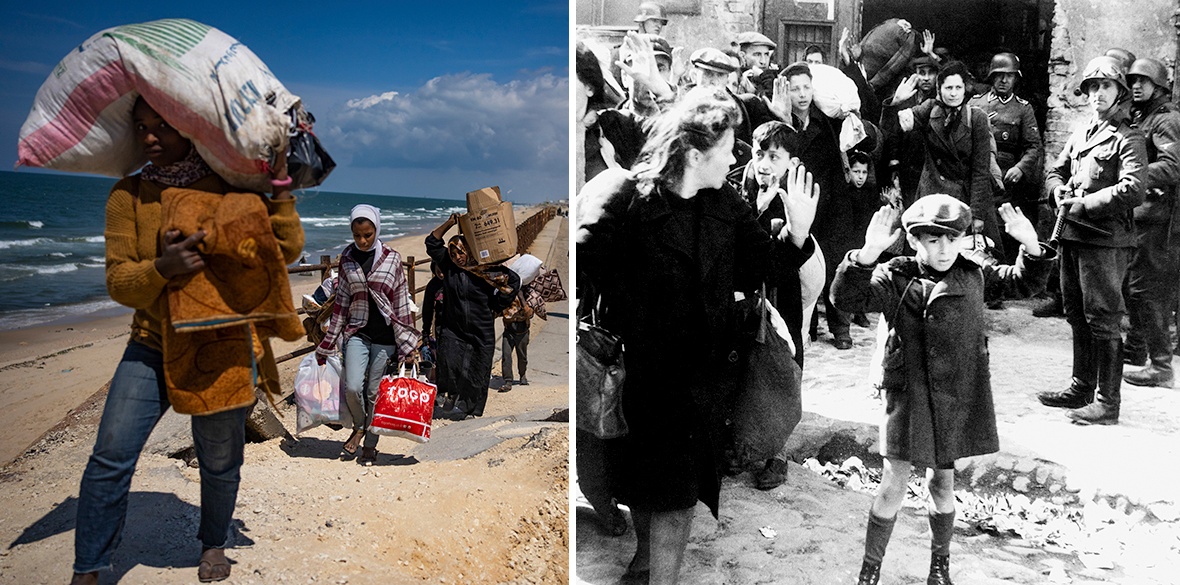This is the last article you can read this month
You can read more article this month
You can read more articles this month
Sorry your limit is up for this month
Reset on:
Please help support the Morning Star by subscribing here
JONATHAN GLAZER is the Academy Award and Bafta-winning director of Zone of Interest, a film that highlights, as he says, “dehumanisation” as practiced outside the Nazi death camp of Auschwitz where the carnage only appears on the off-screen soundtrack.
He has come under attack, not for anything in the film, but for daring to insinuate in his Academy acceptance speech that there is an echo of the film in the “dehumanising” way the genocide in Gaza is being routinely fostered, facilitated and ignored in the West.

Glazer’s film is about the callousness of the family of the German commandant of the death camp whose job it is to oversee extermination. The film’s perspective, in some ways all the more chilling, is that of an intimate glimpse of the family as it goes about its daily activities, surrounded by off-screen cries, screams and orders to shoot and drown the victims just beyond the family garden. Meanwhile the commandant’s wife makes the claim that in their privilege, with a lush vegetation and swimming pool guaranteed by Jewish slavery, they have fulfilled the fuhrer’s dream of ”a living space in the east” for Germans.
The most incendiary part of Glazer’s speech is neither his renunciation of Jewishness, nor the fact of the film being hijacked by the Israeli occupation of Gaza, which is what his now over 1,000 Hollywood critics have focused on in a letter denouncing the speech. Rather, it is the fact that he had the audacity to state that his film is not just about the past but also about the present.
The parallel in the present that he implies is that of those in the West who watch this new holocaust (for that is what it is being called in the Arab world) being livestreamed, and who don’t simply ignore it but actively refute that it is happening.
By suggesting that the film is not “look what we did then” but “look what we do now,” Glazer is making an equivalence between US and Western complacence (and in some cases the active cheering on of the genocide in Gaza), and that of the commandant and his privileged family in the film. Indeed, both benefit from the carnage, as Israel remains the key to US dominance of the Middle Eastern oil that is necessary for fuelling its allies in Europe.
The attack on Glazer gives credence to this interpretation of the film: that the West has situated itself just outside what has been called the concentration camp of Gaza. His attackers simply cannot stand, or let stand, the accusation that they are complicit in genocide. Instead they resort to zionist arguments and talking points to refute his accusation, speaking of “an Israeli nation that seeks to avert to its own extermination,” an “indigenous Jewish people defending a homeland” and a “distortion of history.”
But the “extermination” is not being carried out by the Palestinians but by the zionists against the actual indigenous people of the region who 75 years ago saw their homeland usurped by the creation of an apartheid state, perhaps a new homeland, but of a state that members of the US military have often described as “an American aircraft carrier in the Middle East.”
Each day, in our privileged position outside the camp, in the garden where life goes on as usual, we hear the sounds and watch as the terror increases, now to the point where we all know that the official number of 30,000 Palestinians dead is an underestimate, and where Al Jazeera reports credibly that 25,000 of them are women and children.
Israel is worried that gunshots are too noisy and might disturb us in our gardens, and so have resorted to the more “humane” method of starvation, though they are not above mowing down Palestinians who clamour for the food when one of the few aid trucks gets through.
If any voices are raised to challenge this carnage, as Glazer’s was, the attempt is quickly to silence them so we can all go back to our finely manicured front lawns and backyards where we join Commandant Rolf, his wife, and their children at the pool.









